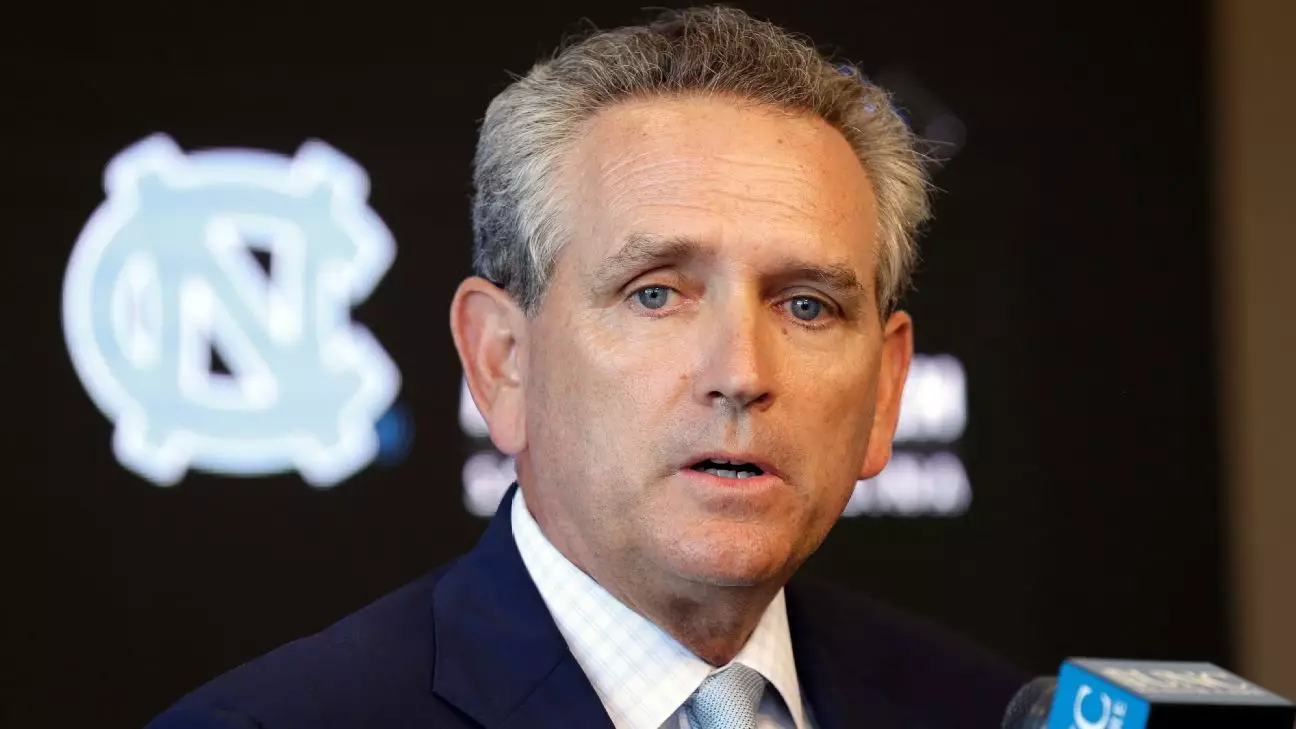North Carolina athletic director Bubba Cunningham has expressed his disapproval of Florida State’s publicized intention to leave the ACC. During a recent board of trustees meeting, FSU president Richard McCullough stated that the Seminoles would consider departing from the conference unless there is a significant change to the revenue distribution model. Cunningham, in response to McCullough’s remarks, criticized Florida State for their approach, emphasizing the importance of loyalty and commitment within the league. The discontent between the ACC members raises questions about the future stability of the conference.
Cunningham firmly believes that Florida State should prioritize being a supportive member of the ACC rather than openly contemplating departure. His suggestion is that if the Seminoles eventually decide to leave, they should follow the established protocols, pay the exit fee of $120 million, and wait for their grant of rights to expire in 2036. By honoring these obligations, Cunningham argues, Florida State would demonstrate respect for the league and its members. However, it remains to be seen if FSU will heed this advice or choose an alternative path.
Grant of Rights: A Binding Commitment
The ACC’s grant of rights agreement imposes a significant obstacle for any school seeking to break away. This agreement, signed by all member schools in 2016, grants the conference control over each institution’s media rights until 2036. Cunningham stressed that the decision to enter into this agreement was a deliberate and legally binding choice made by each member of the league. He argues that it is unreasonable for any school to attempt to retract from the agreement once dissatisfaction arises. Cunningham questions the feasibility of dismissing the contractual obligations and warns against the consequences of such actions.
The ongoing challenge of generating revenue in the ACC raises concerns about its ability to compete with other major conferences, such as the SEC and Big Ten. Cunningham acknowledges the desire for increased funding within the conference but believes that financial superiority is not the sole determinant of success. He emphasizes that the ACC has proven its competitiveness and ability to win despite financial disparities in the past. However, the concern regarding revenue and the shifting landscape of conference alignment persists, casting doubts on the long-term sustainability of the ACC in its present structure.
The UNC athletic director recognizes the precarious nature of the conference’s future. Given the current climate of potential realignment and the decisions that schools and individuals face, Cunningham is doubtful that the ACC will endure indefinitely in its current configuration. Many schools within the ACC have already examined the grant of rights document and engaged in discussions about future scenarios. These internal assessments and conversations indicate that there is genuine worry about the stability and future of the conference.
The public dispute between North Carolina’s Bubba Cunningham and Florida State’s Richard McCullough highlights the growing tension within the ACC. The clash of opinions raises valid concerns about the loyalty of member schools and the sustainability of the conference. As the revenue gap widens between the ACC and other major conferences, the future of the ACC hangs in the balance. It remains to be seen whether Florida State will remain loyal or if other schools will follow their lead in seeking greener pastures elsewhere. The ACC finds itself at a crossroads, and its ultimate fate may rely on the decisions made by its member institutions.


Leave a Reply